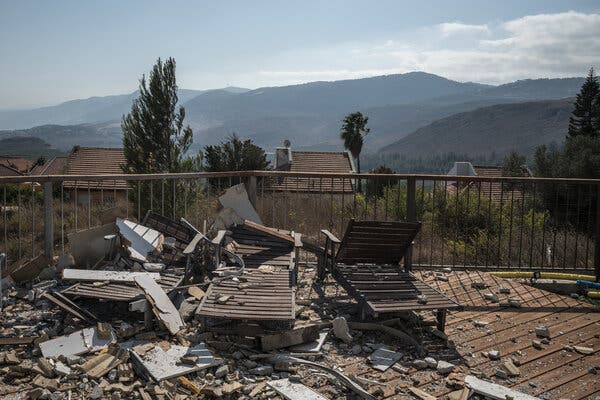Explaining the issues of sovereignty, self-defense and humanitarian safeguards.

Since the start of Israel’s invasion of Lebanon last month, debate has swirled regarding the wisdom of Israel’s two-front strategy amid the ongoing conflict in Gaza, the threat that the fight against Hezbollah poses to civilians and the risk it could ignite a regional war with Iran.
But perhaps even more fundamental is the question of whether Israel’s invasion is legal under international law.
Israel says that it has the right to defend itself, citing a year of rocket attacks by Hezbollah from Lebanese territory. Some of its critics disagree.
“Legality is very much in the eye of the beholder,” said Hugh Lovatt, an expert on international law and armed conflict at the European Council on Foreign Relations. “Does Israel’s right to self-defense trump Lebanon’s right to sovereignty? We can go around and around this circle.”
Additionally, some experts say, self-defense has its legal limits, especially if Israel’s use of force in Lebanon is disproportionate to the threat it faces or if it fails to prioritize the protection of civilians.
“You have a right to self-defense, but you have to exercise this self-defense in a certain way,” said Judge Kai Ambos, a law professor at the University of Göttingen in Germany, who serves on a special tribunal at The Hague that prosecutes war crimes committed in Kosovo during the 1990s. “It’s not limitless.”



